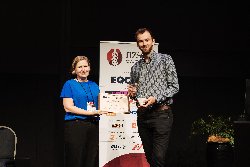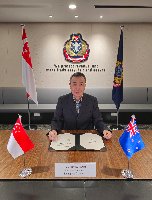If you can’t back it up, don’t say it
20 February 2018
If you can’t back it up, don’t
say it
The Commerce Commission has released a new video, giving guidance to traders on false, misleading or unsubstantiated claims and how to avoid making them.
The video’s title and key message is ‘if you can’t back it up, don’t say it.’
“We think that message captures what traders need to consider when they make claims about their products. It’s particularly important traders can back it up when they make claims that consumers can’t themselves verify, and must rely on what the trader says,” said Commissioner Anna Rawlings.
“Examples of that include claims such as ‘free range’, ‘organic’, or ‘Made in New Zealand'” she said.
The Commission refers to such claims as credence claims, and they are a current priority area for the Commission, particularly those relating to food products and country of origin claims.
“If those claims are misleading, they are harmful to consumers because consumers may pay a price premium for characteristics of a product that do not exist. They’re also harmful to competition because they give an unfair advantage to traders who can’t back up their claims. Finally, they can have an impact on New Zealand’s reputation with tourists and in export markets,” said Ms Rawlings.
The video includes examples of recent cases taken by the Commission, including the Commission’s first prosecution for unsubstantiated representations, where a heat pump supplier made claims about the efficiency of some of its heat pumps, but the court found it couldn’t back them up.
Other cases referred to include:
• bee pollen that a health supplement company said was from “the hardworking bees of New Zealand’s pristine wilderness”, when the bees and their pollen were actually from China
• “frozen yoghurt” which wasn’t actually yoghurt, and the companies involved made misleading health claims
• numerous companies and individuals were prosecuted for claims about alpaca and cashmere products. In one case, a so-called 100% cashmere duvet turned out to be 0% cashmere.
The video will be sent directly to a wide
range of industry and trade organisations.
“We want to catch traders’ attention with this video, and for them to then get more detailed information from our website, or to seek independent legal advice. Once again, if traders can’t back up what they intend to say, they must not say it,” said Ms Rawlings.
The video is available on the Commission’s YouTube channel and is presented by Gordon Harcourt, who is a member of the Commission’s communications team.
Still images from the video can be downloaded from here.
ends


 John Mazenier: Gaffer Tape And Glue Delivering New Zealand’s Mission Critical Services
John Mazenier: Gaffer Tape And Glue Delivering New Zealand’s Mission Critical Services Earthquake Commission: Ivan Skinner Award Winner Inspired By Real-life Earthquake Experience
Earthquake Commission: Ivan Skinner Award Winner Inspired By Real-life Earthquake Experience Reserve Bank: Consultation Opens On A Digital Currency For New Zealand
Reserve Bank: Consultation Opens On A Digital Currency For New Zealand NIWA: Ship Anchors May Cause Extensive And Long-lasting Damage To The Seafloor, According To New Research
NIWA: Ship Anchors May Cause Extensive And Long-lasting Damage To The Seafloor, According To New Research New Zealand Customs Service: A Step Forward For Simpler Trade Between New Zealand And Singapore
New Zealand Customs Service: A Step Forward For Simpler Trade Between New Zealand And Singapore Horizon Research: 68% Say Make Banks Offer Fraud Protection
Horizon Research: 68% Say Make Banks Offer Fraud Protection



